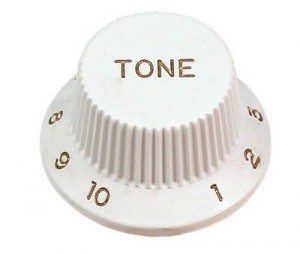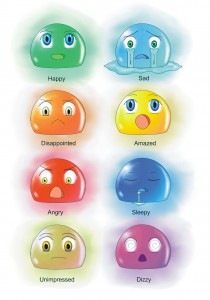This post is going to discuss BOTH language and imagery, rather than just pure imagery (which is limited to metaphors and similes, with a bit of symbolism thrown in for good measure). Taking into account the reasons why Shakespeare used poetic imagery while writing his dialogue (if you haven’t read Imagery in Macbeth part 1, click here) have a look at the quotes below, which are roughly grouped together by theme / image type. Also bear in mind that his use of language is broader than his use of ‘imagery’ and includes techniques like repetition, dramatic irony, allusion, symbolism, rhetorical questions etc.
Ask yourself what the IMPACT of each quote is on you:
- does it help you to understand a character better?
- does it create a particular atmosphere? (taking the place of special effects – lightning, fake blood, smoke machine, sound effects?)
- does it emphasise one of the major themes in the play? how does it add to your understanding of this theme?
- is the language / image itself just really clever, striking, memorable, profound, dramatic, disturbing, upsetting, ironic?
Obviously in an exam you’d only have the opportunity to discuss a fraction of the quotes I’ve included below. I’ve got scene references for some but not all of them!
Supernatural:
- “Fair is foul and foul is fair | Hover through the fog and filthy air” (augmenting earlier references to thunder, lightning and rain).
- “Though his bark cannot be lost | Yet it shall be tempest tossed” Witches
- “You should be women and yet your beards forbid me to interpret that you are so” Banquo
- “If you can look into the seeds of time | and say which grain will go and which will not | Speak to me then” Banquo
- “Is this a dagger which I see before me | the handle towards my hand?“
- “Come, you spirits that tend on mortal thoughts, unsex me here, And fill me from the crown to the toe top-full of direst cruelty! Make thick my blood; stop up the access and passage to remorse……… ………… Come, thick night, and pall thee in the dunnest smoke of hell, That my keen knife see not the wound it makes, Nor heaven peep through the blanket of the dark, To cry ‘Hold, hold!‘ ” All of this is part of Lady Macbeth’s soliloquy in response to the news that Duncan will be paying a visit to her home (nice lady eh?)
- “Never shake thy gory locks at me” Macbeth to Banquo’s ghost.
- “This is the very painting of your fear” Lady Macbeth to her husband.
- “Double, double toil and trouble; Fire burn, and cauldron bubble”. Witches (4.1.1)
Images of disguise and concealment (appearance vs reality):
- “Look like the innocent flower but be the serpent under’t” Lady Macbeth, 1, 5
- “False face must hide what the false heart doth know” Macbeth, 1,7
- “There’s daggers in men’s smiles. The near in blood, the nearer bloody” Donalbain 2, 3.
- Macbeth tells the murderers he hires to kill Banquo and Fleance that he is
- “Masking the business from the common eye for sundry weighty reasons” 3,1
- He tells Lady Macbeth that they must “make our faces vizards to our hearts, disguising what they are” 3,2
- He admits “there’s not a one of them but in his house I keep a servant fee’d” 3,4
- The mask comes off when he resolves “henceforth the very firstlings of my heart shall be the firstlings of my hand” 4,1
Clothing Imagery:
- “The Thane of Cawdor lives: why do you dress me in borrowed robes?” Macbeth, 1,3
- “I have bought Golden opinions from all sorts of people, Which would be worn now in their newest gloss, Not cast aside so soon” Macbeth, 1,7
- “Was the hope drunk wherein you dressed yourself?” Lady Macbeth to Macbeth 1,7
- “Adieu! Lest our old robes sit easier than our new” Macduff to Ross, 2,4
- “Now does he feel his title hang loose about him, like a giant’s robe upon a dwarfish thief” Angus, 5,2
Blood Imagery:
- “What bloody man is that?” Duncan, 1,3
- “He unseamed him from the nave to th’ chops and fixed his head upon our battlements” Injured soldier 1,3
- “I’ll gild the faces of the grooms withal, for it must seem their guilt” Lady Macbeth
- “Will all great Neptune’s oceans wash clear this blood from my hand? No this my hand will rather the multitudinous seas incarnadine making the green one red” Macbeth
- “A little water clears us of this deed” Lady Macbeth
- “Here lay Duncan, his silver skin laced with his golden blood” Macbeth, ironically, explaining his murder of the grooms.
- “Blood will have blood” Macbeth
- “I am in blood stepp’d in so far that should I wade no more, returning were as tedious as go o’er” Macbeth
- “My soul is too much charged with blood of thine already” Macbeth
- “Out out damned spot” Lady Macbeth
- “Who would have thought the old man to have so much blood in him?” Lady Macbeth
- “All the perfumes of Arabia will not sweeten this little hand” Lady Macbeth
- “So foul and fair a day I have not seen” Macbeth
-
“I have given suck, and knowHow tender ’tis to love the babe that milks me.I would, while it was smiling in my face,Have plucked my nipple from his boneless gumsAnd dashed the brains out, had I so sworn as youHave done to this” Lady Macbeth
- “The night has been unruly… lamentings heard i’ th’ air, strange screams of death…some say the earth was feverous and did shake” Lennox
- “His gashed stabs looked like a breach in nature” Macbeth
- “By the clock tis day and yet dark night strangles the travelling lamp” Ross
- “A falcon was by a mousing owl hawked at and killed” Duncan’s horses: “Tis said they ate each other” Old Man
- “They have tied me to a stake: I cannot fly | But bear like I must fight the course” Macbeth









